Opportunities from the "billion dollar" market
Just a few years ago, the concept of welcoming tourists from Muslim countries was quite strange. Hanoi often focused on traditional markets such as: European countries, Northeast Asia, North America, Australia... However, in the past two or three years, especially after the Covid-19 pandemic, the number of tourists from Muslim countries has increased.
The concept of Halal tourism has also become familiar. The presence of these guests has led to the emergence of a series of hotels and restaurants that specialize in serving or have separate spaces for Halal tourists, mainly located in the two largest tourist centers of Hanoi , Hoan Kiem District and Tay Ho District. Many four and five-star hotels in Hanoi also have restaurants serving dishes that meet Halal standards.
Deputy Director of Hanoi Department of Tourism Tran Trung Hieu said: “Tourists from countries with Muslim communities coming to Hanoi are increasing, typically India, Malaysia, Indonesia, Bangladesh, Turkey, Saudi Arabia, United Arab Emirates (UAE), Brunei, Qatar... In 2024, the number of visitors from the Halal market will reach about 650,000, accounting for 15% of the total number of international visitors to Hanoi. Of which, Halal visitors from India account for 50% of the total. Some markets with strong growth rates are Indonesia, Türkiye...”.
The Halal tourism market is newly exploited, but has great potential. Because the Halal market currently has 2.12 billion people, a young population, many regions have high spending ability. This tourism market is expected to reach a spending level of 300 billion USD by 2028.
However, this novelty poses many challenges, the biggest of which is cultural differences. Regarding cuisine , Muslim tourists only eat Halal-certified foods; accommodation must have a place for prayer, especially collective prayer because Muslims usually pray 5 times a day; Muslim women also like privacy and discretion...
Chairman of the Vietnam Halal Association Mieu Abbas said: “The key is that we need to understand cultural differences so that when serving, guests feel respected for those differences. Currently, many tourism businesses lack knowledge, lack support from experts and do not have international access channels. As one of the largest tourism centers in the country, Hanoi needs to take the lead in forming a standard Halal ecosystem.”
Due to cultural differences and the newness of Halal tourists, Hanoi still faces difficulties or is not ready to meet the needs of Halal tourists. According to Master Nguyen Minh Truyen, in terms of human resources, Hanoi currently only meets 40% of Halal tourism human resources. Halal-standard cuisine is a problem.
Many visitors find street food very attractive, but do not dare to eat it, because they do not eat pork or amphibians; the livestock itself must meet Halal standards when slaughtered.
Ms. Tran Hong Quyen, representative of Vina Trip, a business with a lot of experience in welcoming Halal guests, said: “Currently, the human resources to serve this type of guest are limited, and training facilities are just starting to operate. We see that the Halal guest stream is very abundant, but if we do not respond well, we can easily lose customers.”
Meanwhile, many Asian countries, including non-Muslim countries such as Japan and Thailand, have quickly sought solutions to welcome this "new" stream of tourists.
Businesses need support to transform
To conquer Halal tourists, cultural understanding plays a key role. Director of the Halal Certification Organization (certifying services and products that meet Halal standards) Nguyen Khac Hoang Son said: “Halal tourists have common characteristics of liking to learn about and experience local culture, liking life experiences, emphasizing safety, especially safety for women…
To exploit this market sustainably, Hanoi should develop a city-level Halal tourism development action plan, integrated into Hanoi's tourism development strategy. Next, specialized agencies need to guide business units, including hotels, restaurants, and tourist attractions, to design separate prayer areas, Halal kitchens, and separate dining areas if necessary. Some specialized tours should be developed such as: Halal city tours, Halal craft-agricultural village tours, cultural-resort tours suitable for Islamic culture, compile behavioral guidelines, and serve Muslim guests for service establishments...
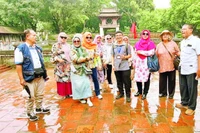
Prepare conditions to welcome Halal tourists
05/08/2025 20:52
Regarding human resources, in the long term, it is necessary to strengthen systematic training in both service skills, focusing on cultural understanding and foreign languages, including the languages of some Muslim countries. In the immediate future, according to Nguyen Quoc Huy, Head of the Faculty of Tourism - Hanoi University of Business and Technology, state management agencies need to increase support for tourist destinations, accommodation facilities, tour guides, drivers... to improve knowledge of serving Halal guests.
What many tourism businesses are concerned about is whether investing in Halal tourism is expensive, and whether it is necessary to invest in separate areas to serve Muslim guests or not?
CEO of Phan Gia Xanh Garden (an ecological farm that meets Halal standards in Khanh Hoa) Vo Ngoc Han said: “Halal tourists really like experiences close to nature. Hanoi has many ecological farms that can convert some of their functions to welcome Halal guests. I have found that when you understand the culture, the conversion can be easy and inexpensive. For example, regarding cuisine, if you don’t understand it, it is quite complicated. But if you understand it, it is convenient. Fish caught in the pond, vegetables picked in the garden, unprocessed, are naturally Halal-standard. They like to have private space, so when they eat and drink, they should arrange a room, a separate house...”.
In order for businesses to better welcome Halal customers, a more systematic strategy and more active support from management agencies are needed. Some experts suggest that for the group of consumer products and Halal cuisine, Vietnam is currently strongly developing organic products and OCOP products. Some characteristics of organic products are very close to Halal standards. Therefore, if management agencies support, production facilities can easily switch to producing products that meet Halal criteria.
Vietnam has a Halal certification organization, which is recognized by 57 Muslim countries worldwide, so Halal certification is more convenient. However, according to the President of the Vietnam Halal Association Mieu Abbas, the most important thing is trust, that is, creating trust and sharing among customers, then exploiting this market will be truly sustainable.
Article and photos: GIANG NAM
Source: https://nhandan.vn/chu-dong-don-khach-du-lich-hoi-giao-post884163.html


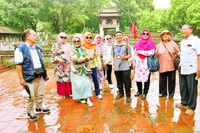




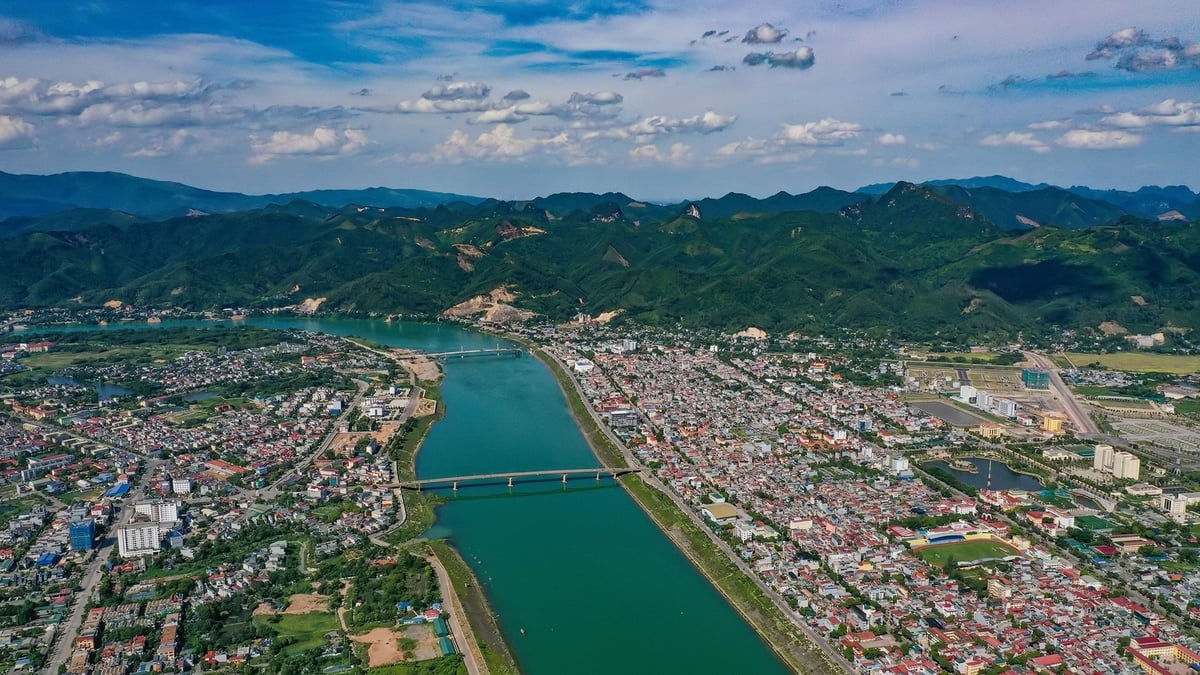

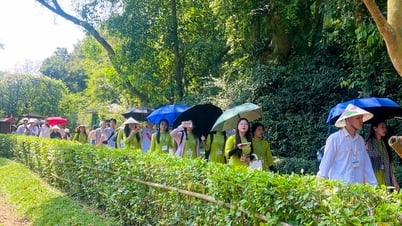



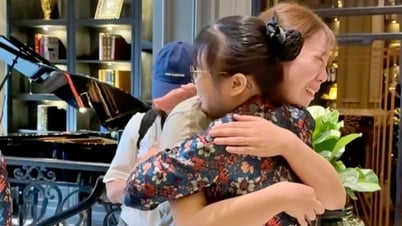


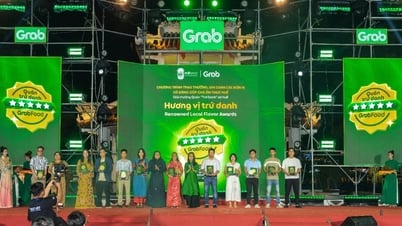
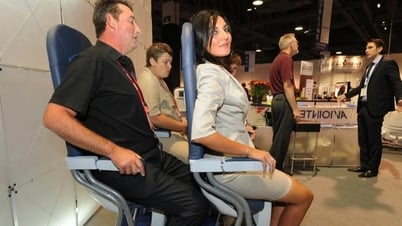






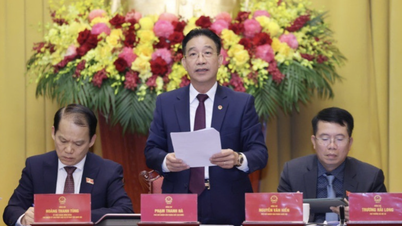


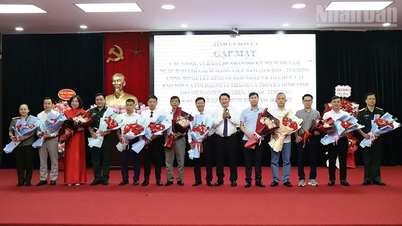







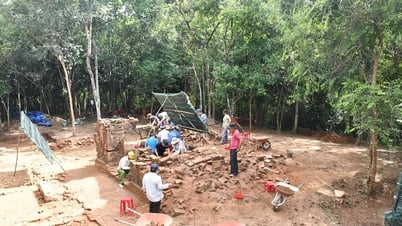


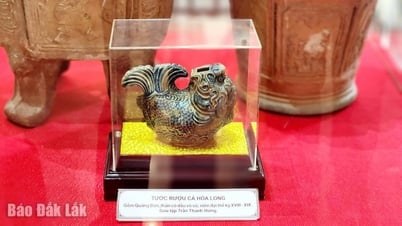











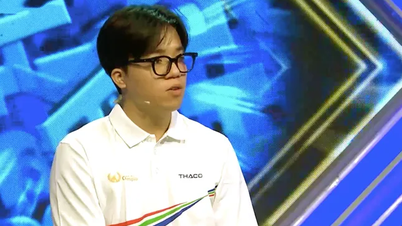




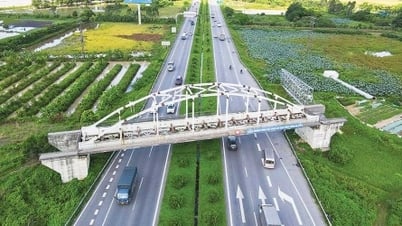
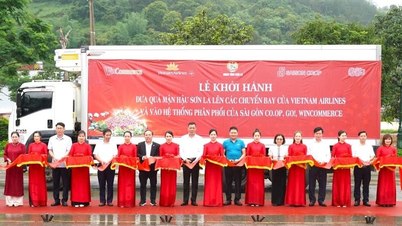











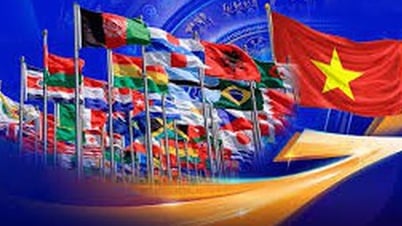
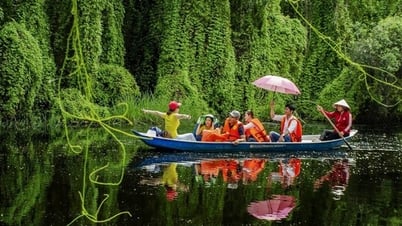
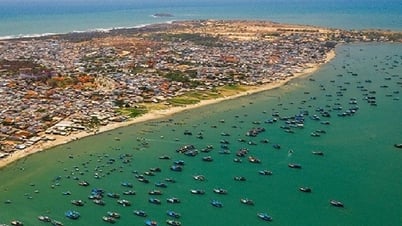

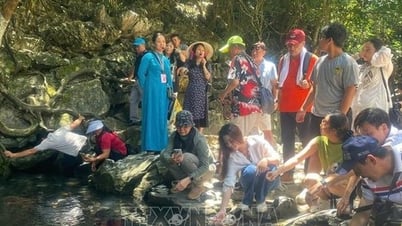
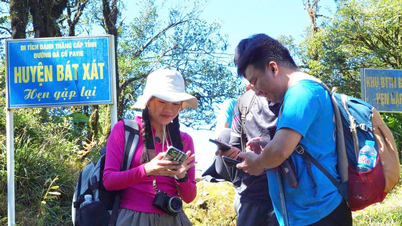

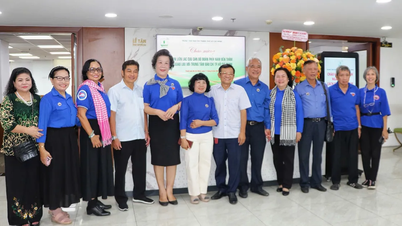



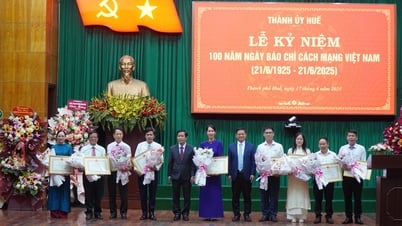


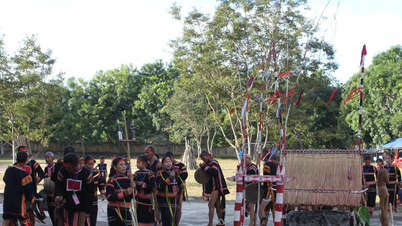







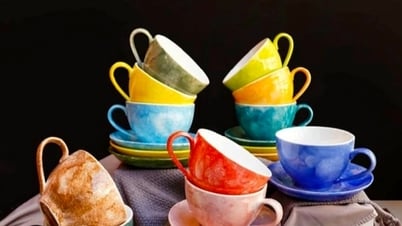
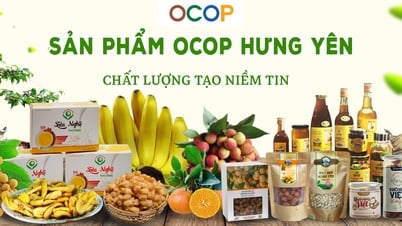


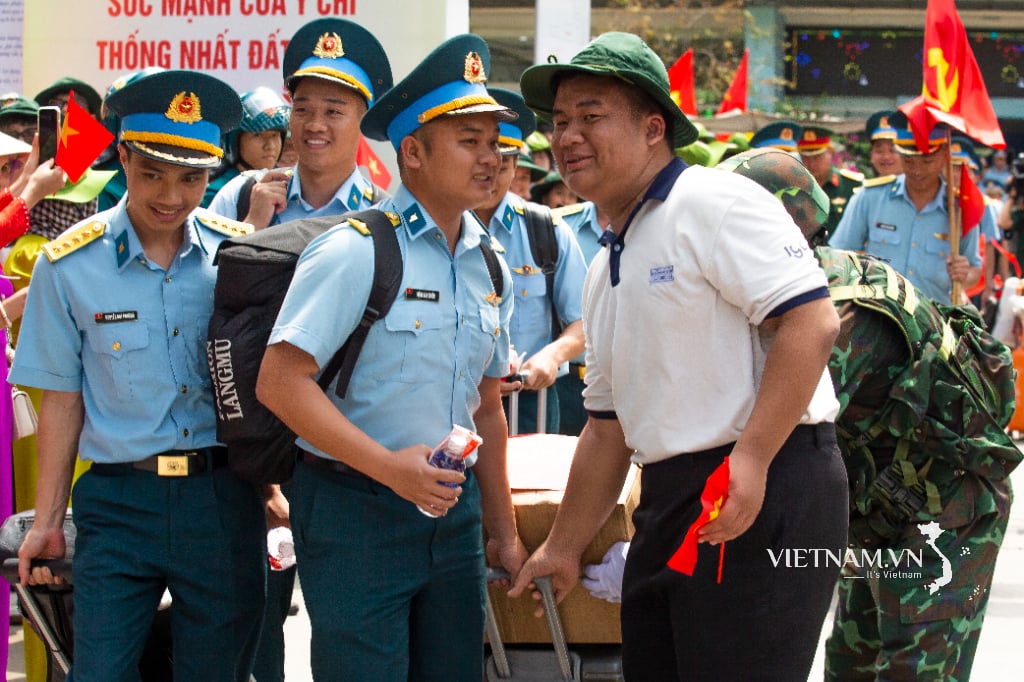


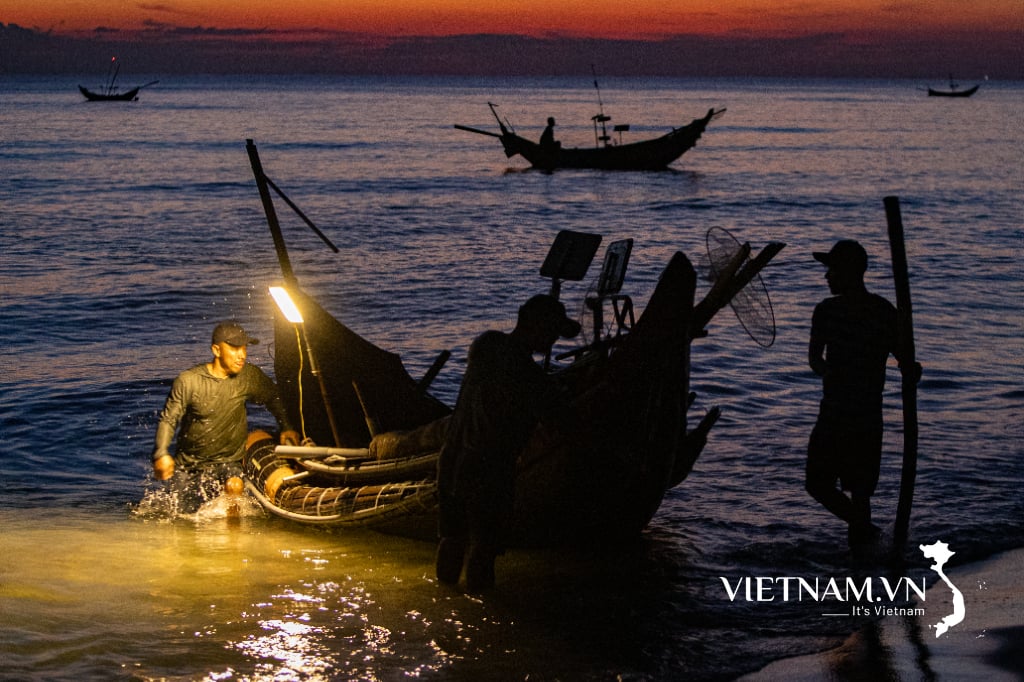
Comment (0)